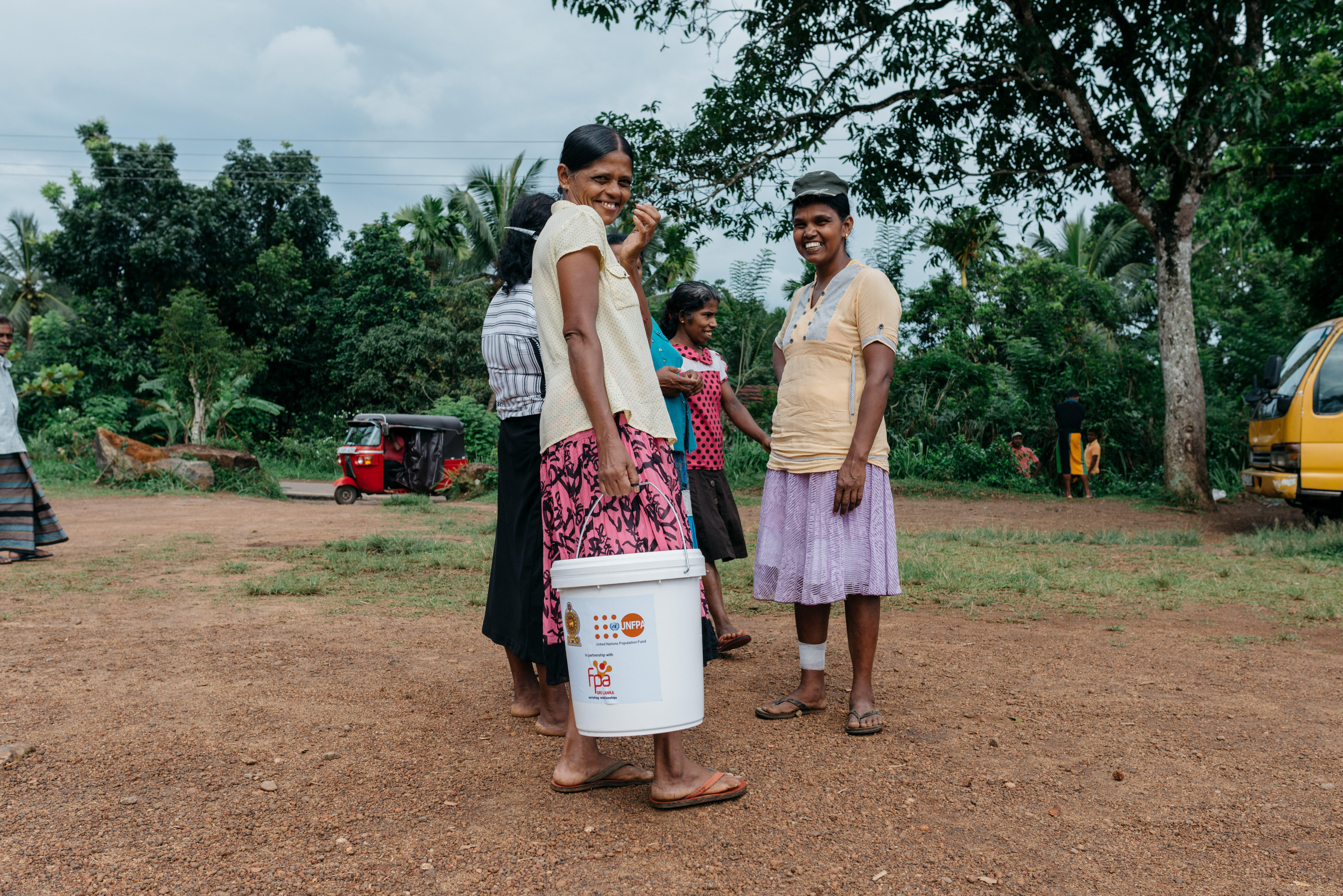Women represent nearly 70 percent of the healthcare workforce globally, yet the sexual and reproductive health and psychosocial needs of frontline workers are largely ignored in the face of the health pandemic. As countries around the world impose lockdown and curfew measures to curb the spread of COVID-19, a spectrum of women lose access to reproductive health-related products, services and information.
This shows that women are disproportionately affected when a crisis sets in. Women and girls also shoulder unpaid care and informal jobs especially during crises which can put an immense strain on the possibility of self-care, particularly during such trying times that have warranted an overhaul of daily life routines. UNFPA is working to ensure that women and girls have access to their sexual and reproductive health needs and their dignity is preserved in the midst of the pandemic, through the prepositioning and delivery of dignity and maternity kits.
UNFPA’s trademark dignity kits are designed to help maintain the basic hygiene of a woman of reproductive age during emergency situations, be it floods, landslides and any other natural or man-made crises. Dignity is more than physical or mental wellbeing. It is about meeting the basic needs of women and girls who hold together the fabric of our communities during catastrophes. These dignity kits, which include sanitary napkins, bath soap, washing powder, and toothpaste and other essentials, are carefully curated to match the specific needs of the local society. In Sri Lanka, UNFPA supplied over 4000 dignity and maternity kits in partnership with the Ministry of Health in Sri Lanka in 2020.
Initially, this was administered and distributed by the Colombo Municipal Council as they carried out PCR tests within the Colombo City limits.
“We provided these kits to women and girls of reproductive age as we continued the PCR testing systematically through the entire city amidst the rising cases. I remember mothers crying when they received the kits as nobody had cared for their SRHR needs, and purchasing and accessing these items during the lockdown was impossible. It was nice to see how appreciative they were” said Deputy Chief Medical Officer Dr. Chintha Jayampathi.
Fully appreciating the provisions of the dignity kits, Hasanthi from Wanathamulla stated “The curfew meant that the small shops that were close to our home were no longer functioning and we couldn’t step out even for a moment. Though this was a measure of protection, it also became a point of contention because we no longer had access to menstrual pads. Both my 12-year-old daughter and I were really struggling as online shopping was not accessible to us. We are forever grateful for this initiative that finally understood the distress that all the women and girls of this country were going through.”
Modern contraceptives are central to ensuring adolescent and women’s health and empowerment. However, due to COVID-19 supply chains have faced interruptions as a result of safety precautions and economic downfall. This could have had life-threatening consequences and reverse recent gains to ensure universal access to sexual and reproductive health (SRH). Yet, in collaboration with the Family Planning Association and the Ministry of Health, UNFPA was able to address this by redoubling efforts to ensure appropriate dissemination of condoms were in place. As an addition to these efforts, UNFPA also supported frontline workers who put themselves at risk day in and day out, by procuring and providing Personal Protective Equipment (PPE) and kits for the clinical management of COVID-19.
“The pandemic has restricted the mobility of women and girls, and their accessibility to family planning services and basic hygiene products, leaving them exposed to other risks apart from the coronavirus such as unplanned pregnancies. With the support of UNFPA and other agencies, we have also been able to distribute the products and support female sex workers, persons with disabilities, the LGBTQI+ community and other populations who continue to face an array of difficulties in accessing health and safety measures” says Tharanga Sachinthani, Senior Manager outreach, who works as the humanitarian effort coordinator at the Family Planning Association in Sri Lanka.
As the pandemic continues, UNFPA perseveres to support the relevant Ministries to ensure that paramount sexual and reproductive needs of women and girls are not overlooked in situations of emergency. Despite the health systems being stretched and overwhelmed in responding to this crisis. Without careful consideration of women and girls, and other vulnerable populations, in both response and recovery plans, countries will not be able to fulfill their goal in ensuring we truly leave no one behind.



